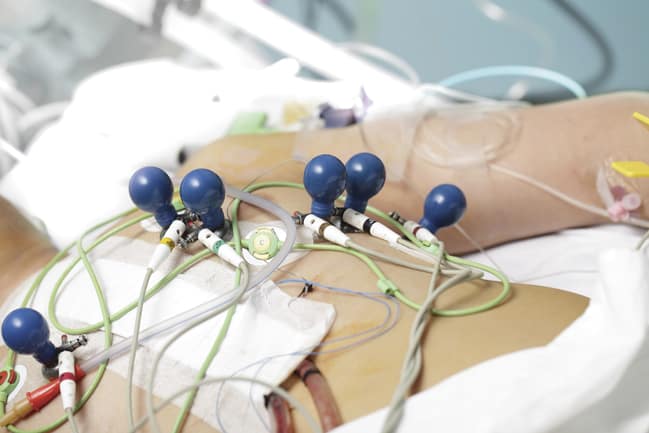
In the first of a new series, novelist Jon Wallace considers the science fiction implications of engineering stories that have caught his eye. This month: the dystopian world of ‘smart’ dressings
For many science fiction writers the human form, and man’s attempt to alter or augment it, offers a rich seam of stories. We like to ask: how far do skin and bone define our humanity? Living beyond corporeal concerns of sex, age, pain and emotion, what will be left of us, and what else might we discover about ourselves? Imaginations transport us into worlds where humanity has engineered an ‘improved’ homo sapiens design (Star Trek’s Khan Noonien Singh), or even rendered the body into a disposable shell (Richard Morgan’s Altered Carbon).
Such stories tend towards gloomy visions, where future engineers’ hubristic tweaking has created repression, division, or threatened the very existence of the species. Still, there is something inherently optimistic in these ideas: these are futures where, whatever the repercussions, human ingenuity has achieved an evolutionary leap; transforming the very way we experience life.
Yet sometimes, reading The Engineer’s news feed, the scifi author’s imagination can be excited by a more immediate future, one that will come before such ‘Brave New Worlds’; an epoch where science, rather than transforming our bodies (or taking us out of them altogether) will instead refine the way we preserve our plain, ‘mark one’ human structure.
In December, The Engineer reported on DermaTrax, a smart dressing capable of monitoring chronic wounds and transmitting data wirelessly to a nurse station. The intentions are honourable enough: using a range of sensors, the dressing removes the need for nurses to constantly replace bandaging, freeing them up for other work and easing the patients’ discomfort. However, much of the meat of the researchers’ pitch hinges on cost: the new dressings, we’re told, will “potentially make care… more cost effective for healthcare organisations.”
That kind of language sets the dystopia sense a-tingling: science fiction has rarely if ever had a good thing to say about the impact that monolithic corporations will have on our future – they make easy targets – and few come more monolithic than certain healthcare organisations.

How soon, we might ask, before insurance companies require chronically wounded clients to wear DermaTrax patches as a precondition of policies? How soon before the dressings are used for all forms of injury, the sensors spreading even to the hospital sheets themselves? How could insurers, constantly striving for reduced risk and maximised profit, resist the chance to monitor their clients’ health with such inescapable, ‘real-time’ data? An account of some ambitious compliance officer’s ascent through the ranks of such an Orwellian future firm makes for a promising story.
The scifi author might also explore the perspective of the patient: how would the bandaged of the future cope with technology that documents every twist and turn of a healing wound? Dressing manufacturers might discover a new income stream from people who wish to monitor their own wounds’ status. What effect, we might ask, would such an intimate relationship with one’s afflictions have on the mind?
A story might see a character housebound by an injury, constantly accessing her sensor data via a phone app, growing obsessed, and seeking out miracle cures online. Here, her story twists into a scifi horror, as she goes slowly mad in pursuit of improvement, self-medicating with crackpot cures that only inflict new and more terrible wounds until there is nothing left of her but a mass of twitching bandages, keeping a meticulous record of the barely human creature expiring within.
What kind of artificial intelligence (AI), we might well ask, would be created in the primordial soup of medical data created by smart dressings? Could it be a hypochondriac intelligence, born convinced that it is sick, yet without a body to cure; a story where humanity is learning to augment or discard its body, while AI longs to inherit it.
And who would be more human then? Our wounds, science fiction constantly reminds us, are part of what defines us.
Jon Wallace is a science fiction author living and working in England. His first novel, Barricade, was published in 2014. Check out his website jonwallace.co

JLR teams with Allye Energy on portable battery storage
This illustrates the lengths required to operate electric vehicles in some circumstances. It is just as well few electric Range Rovers will go off...